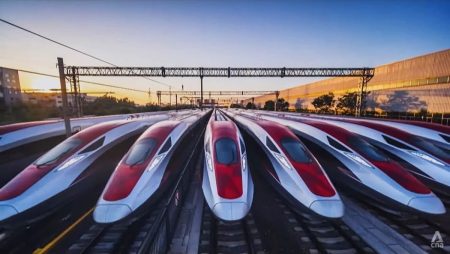OCBC Bank is proactively supporting the growth of small and medium-sized enterprises (SMEs) venturing into the Iskandar Malaysia Special Economic Zone (SEZ) in Johor, Malaysia. Recognizing the potential of this burgeoning economic hub, OCBC has assembled dedicated teams of advisors to facilitate SME expansion into the region. These advisors, equipped with experience assisting companies in establishing Johor-based operations, will provide invaluable guidance to SMEs navigating the intricacies of cross-border expansion. OCBC’s commitment to empowering SMEs extends beyond advisory services, encompassing efforts to connect businesses with suitable partners within the SEZ ecosystem, fostering synergistic collaborations and promoting sustainable growth. This initiative underscores OCBC’s dedication to facilitating regional economic development by empowering SMEs to tap into new markets and realize their full potential.
While the Iskandar Malaysia SEZ holds immense promise, the looming shadow of the US-China trade war and the potential for extended tariffs casts uncertainty on the region’s prospects. Some businesses express concern that US President-elect Donald Trump’s proposed tariffs on Chinese goods, potentially extending to Southeast Asian nations like Malaysia, Vietnam, Thailand, and Cambodia, could dampen investment and growth. These countries have benefited from the “China Plus One” strategy, where companies diversify their supply chains to mitigate the impact of US tariffs on Chinese goods. The potential for extended tariffs raises questions about the continued attractiveness of Malaysia, including Johor, for Chinese investment.
Economic analysts, including OCBC’s senior ASEAN economist Lavanya Venkateswaran, acknowledge the potential negative impact of extended tariffs on Malaysia’s economic growth. Estimates suggest that Malaysia’s GDP growth could be reduced by 0.7 to 1.4 percentage points if tariffs are applied to Southeast Asian countries. While Johor’s growth is expected to mirror national trends, the impact is anticipated to be somewhat diluted due to its diversified economy. Despite these concerns, some business leaders remain optimistic about the long-term prospects of the SEZ.
Despite the trade war uncertainties, several factors continue to attract businesses to Malaysia. Hui, head of manufacturing firm Tianma Precision Machinery, notes that while tariffs are undeniably a concern, they are not the sole determinant of investment decisions. Malaysia’s robust infrastructure, both physical (land, electricity) and soft (cultural similarities with China, including language and cuisine), offers significant advantages. This sentiment is echoed by Lee, a representative of the Johor state government, who emphasizes the region’s preparedness in terms of legal, financial, and logistical infrastructure, particularly within the SEZ. Johor has witnessed substantial interest from Chinese companies in sectors like semiconductors, chemicals, and electrical and electronics products.
The Johor state government views the SEZ as a potential net beneficiary in the short term, despite the external challenges posed by the US-China trade war. The established infrastructure and strategic location position Johor as an attractive alternative for companies seeking to diversify their supply chains and mitigate tariff risks. While the long-term impact remains uncertain, the immediate benefits of a well-developed ecosystem and proactive government support could attract further investment and stimulate economic activity within the SEZ.
In conclusion, OCBC Bank’s proactive approach to assisting SMEs in expanding into the Iskandar Malaysia SEZ demonstrates a commitment to regional economic development. While concerns regarding the US-China trade war and potential tariffs persist, Malaysia’s robust infrastructure and cultural affinities with China continue to draw investment. The Johor state government remains optimistic about the SEZ’s prospects, viewing it as a potential short-term beneficiary of supply chain diversification efforts. The future trajectory of the SEZ will undoubtedly be influenced by the evolving global trade landscape, but its underlying strengths position it for continued growth and development.










